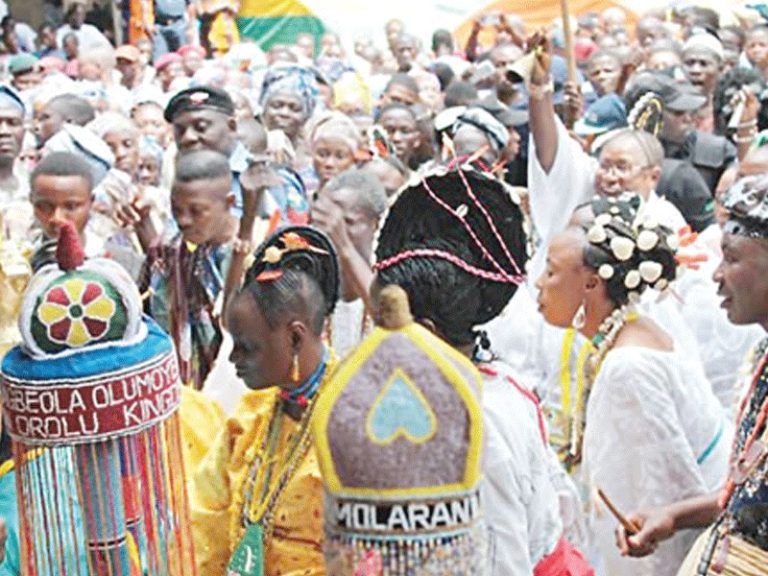Isese, the Yoruba word for tradition, is also used to denote different kinds of festivals held by adherents of the Yoruba traditional religion or culture in Nigeria and Cuba, Brazil, the United States, Benin, and other countries.
The Yoruba tribe constitute about 35% of Nigeria’s total population and are approximately around 40 million Yorubas over the region of West Africa with a large ethnolinguistic group or ethnic nation in Africa, and most of them speak the Yoruba language.
Among the several Isese festivals celebrated majorly by the Yorubas are Eyo, Igogo, Ojude Oba, Olojo, Oro, and Sango festivals.
An important aspect or practice that is common in the festival celebration is offering sacrifices made to gods like Obatala, Sango, Ogun, Sankpanna, and Esu, which are peculiar to the Yoruba tribe.
The sacrifices are often championed by Olu-Awo, a chief priest or priestess with the mandate or instruction from Ifa or Orunmila, a mystical figure or deity of wisdom and intellectual development for direction on the spiritual aspect of the celebration.
Below are the five things to know about the annually celebrated festival by the Yoruba tribe:
- Isese Day is a regional public holiday observed by Nigerian states like Osun, Ogun, Lagos, Kwara, Edo, Ondo, Oyo, Ekiti and Kogi states to give a sense of belonging to adherents of traditional religions.
- It is usually celebrated on August 20 every year in Osun as a day for traditional worshipers to celebrate their deities.
- It is a Yoruba traditional religion under the group of Ancient Religion Societies of African Descendants International Council.
- Prayer, dance and sacrifices are made with animals like cows, goats, dogs and birds at specific venues depending on the type of god. Sacrifice to Osun is done at the river, while that of Oro is done at shrines.
- Colour white, among other colours like red, and black is usually the colour of the attires worn by adherents to the festivals.
[email protected]
